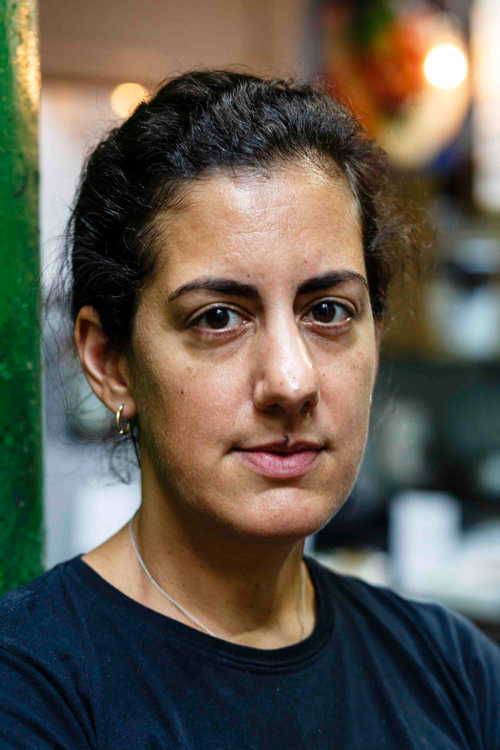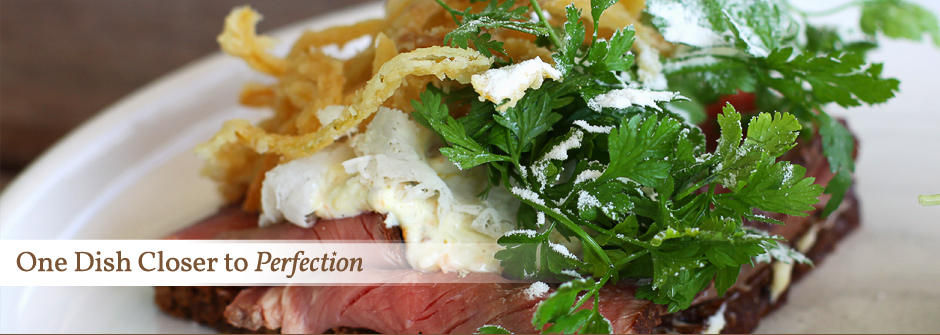I am what I eat: Nadia Stokes
 Saturday, February 11, 2017 at 3:21PM
Saturday, February 11, 2017 at 3:21PM  Photo: Miles Willis
Photo: Miles Willis
This post first appeared on the Borough Market website as part of my series, I Am What I Eat, where I explore the links between food and identity, interviewing traders about the foods that are important to them and why.
To conclude my second series I asked my commissioning editor, Claire Ford, for someone who touched on some of the other themes in the series - someone interested in sustainability and/or environmental issues, someone with ethical and moral values around food, but perhaps a meat-eater to contrast with some of the other interviewees, someone who cares about where there food comes from. I didn't expect her to find someone who covered all these bases and several more. Nadia was a joy to interview; I hope you'll enjoy reading this article, as much as I enjoyed writing it.
“I had a very close relationship with food all my life. I grew up in Cyprus in a very, very, very small village in the middle of nowhere. I think it was about 80 inhabitants to 400, 600 goats. I don’t think I realised how much it was a part of me until I came to the UK.”
Nadia Stokes, co-owner of Gourmet Goat, first came to the UK to study law in her early 20s. The way people viewed food was the “biggest culture shock” for her. “Being in the supermarket in the UK I just remember being like ‘why is everything wrapped individually’ and ‘why is everyone buying single cucumbers?’” She came to terms with this in time, but “there was still a massive hole in my life of really, really local produce”.
Growing up in Cyprus, she spent a lot of time helping her grandmother prepare food. That not only involved learning to cook, but also gathering grapes, vine leaves, olives and almonds from the fields and buying cheese and meats from local producers. “Rather than just thoughtlessly putting things into your supermarket trolley, it was a case of ‘well I’m going to X for this and Y for this, because I know where it comes from and how they make it.’”
This ethos underlies the Gourmet Goat’s focus on Eastern Mediterranean village food, and in particular, goat meat. Nadia tells me that village food was “there for the happiness of the soul but also worked in harmony with the environment”. Waste was frowned upon; her grandmother taught her to use every part of an ingredient and “to make a massive array of dishes out of one tiny thing”.

This explains her passion for the sustainable side of the business. “For me, it was an instinctive approach from the way in which I watched my grandmother live, which was really respectful of the land and what it had to offer.” Nadia was especially horrified by the way that the British dairy industry slaughter male kid goats and waste them. “Where I come from kid goat meat is a celebratory dish and it’s used on special occasions.”
The place where Nadia grew up has played an important role in shaping her relationship with food, but perhaps even more significant was her relationship with her grandmother. Her grandmother was not only her teacher; she also provided a “safe haven” for her when her parents were going through a long and acrimonious divorce. “With my grandmother I just felt comfortable and safe. Her kitchen became a bit of a sanctuary for me. I think food can do that for you.”
She tells me that her grandmother had a very strong nurturing side and that she expressed this through food. Instead of saying ‘I love you’ her grandmother would ask ‘Have you had this? Have you tried this? What did you have for lunch? What are you eating tonight?’ “Those are the expressions of love and interest and that’s how they come about, through food. I think possibly it’s quite common in conservative cultures, they never actually vocalise their feelings.”
Today, Nadia still feels “very calm” when she’s cooking; she finds the act of doing something positive can help to “neutralise any negativity or hostility”. This extends beyond her own inner peace; she consciously uses food, not only as an expression of love, but also to express her “sense of fairness”.
“We call our food Eastern Mediterranean because I hate it when people claim food as their own.” For Nadia, who grew up in the wake of the Turkish invasion of Cyprus, this is just another example of the unnecessary division between the cultures there. “The fact that people choose to focus on difference makes me sad, when there is so much commonality … it’s just so destructive.”
 Photo: Miles Willis
Photo: Miles Willis
Nadia and her partner Nick hope one day to become London’s first sustainable eatery “in the true sense of the word”. For Nadia, this means making everything from scratch, using vegetables that would otherwise go to waste, working with producers directly and “knowing everything there is to know about the animals”. Even the smaller details, like using fair trade aprons and doing away with harsh chemicals, have been thought through. Eventually they want to become carbon neutral.
In the meantime the stall is flourishing, an oasis of harmony, as well as great food. Her bestseller is the kofta – her grandmother’s recipe. Her regular customers come from all different backgrounds: Turkish, Greek, Lebanese and lots of Arabic speakers. They all bring back their friends and family “because the food resonates with them,” as it does for her.
You can read Nadia's recipe for Dolmades here or on the Borough Market website.
 Vix |
Vix |  Post a Comment |
Post a Comment |  Borough Market,
Borough Market,  Cyprus,
Cyprus,  identity,
identity,  sustainability in
sustainability in  Identity
Identity 
Reader Comments